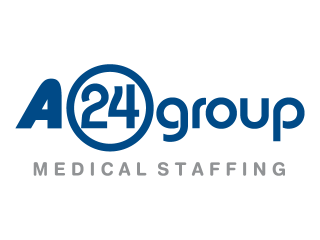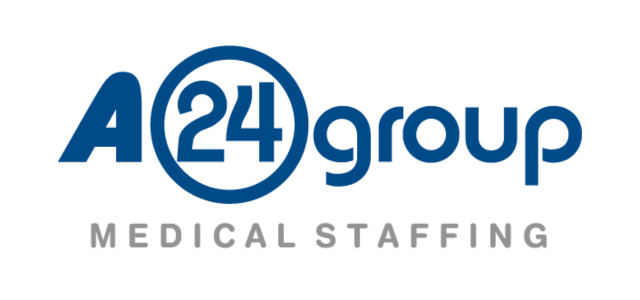Corporate Social Responsibility
A24Group Corporate Social Responsibility Policy
The A24Group maintains a commitment to monitor best practice and operate continuous improvement in Corporate and Social Responsibility (CSR) in the conduct of our business.
We believe that CSR should be part of the fabric of the business and should extend from the top down and across the whole organisation. Therefore, responsibility for CSR is managed at Board level.
The A24Group is currently formulating policy to introduce an ambitious but achievable new programme of CSR after research and planning, based on proven principles and a rigorously tested framework that can be implemented and managed throughout the organisation.
Environmental Responsibility
Please visit our national web sites for registration information: you can register there, subject to your eligibility. Current initiatives include a review of opportunities to reduce the environmental impact arising from our candidate staff - locum doctors, agency nurses and other temporary medical personnel - travelling to their place of work. We continue to survey the methods of transport, distances travelled and journey frequency. This factors in such issues as the availability of public transport, proximity and access to work and home, seasonality and time of day.
We are also reviewing opportunities to offset the carbon footprint directly, based upon assessing the distances travelled for shifts and local factors that affect the travel profile. We are exploring the capability to assess average weekly carbon outputs in relation to new industry standards and measurement protocols.
Global Greenhouse Gas Reporting Protocols aim to harmonise GHG accounting and reporting standards internationally to ensure that different trading platforms and other climate related initiatives adopt consistent approaches to GHG accounting.
Equal Opportunities
The aim of our policy is to communicate the commitment of the Managing Director, Board of Directors and senior management team to the promotion of equality of opportunity at A24Group. It is our policy to provide both permanent and temporary employment equality to all, irrespective of:
Gender, including gender reassignment
Marital or civil partnership status
Having or not having dependants
Religious belief or political opinion
Race (including colour, nationality, ethnic or national origins or lifestyle)
Disability
Sexual orientation
Age
The A24Group is opposed to all forms of unlawful and unfair discrimination. All job applicants, employees and temporary staff and others who work for us will be treated fairly and will not be discriminated against on any of the above grounds. Decisions about the recruitment and selection, promotion, training or any other benefit will be made objectively and without unlawful discrimination.
We recognise that the provision of equal opportunities in the workplace is not only good management practice, it also makes sound business sense. Our equal opportunities policy will help all those who work for us to develop their full potential, and the talents and resources of the workforce will be utilised fully to maximise the efficiency of the organisation.
Active initiatives include the founder, Penny Streeter OBEs’, continuing role as speaker at a programme of engagements to promote entrepreneurial activity and gender equality of opportunity in the workplace for women.
Read more about our Gender Pay Report
Corporate Governance
Corporate Governance is the framework by which the A24Group is accountable to its clients, agency / temporary staff, permanent staff, other stakeholders and the wider community. Within this framework, the company takes decisions, and leads and controls its functions to achieve its objectives. Organisations with good corporate governance have the capacity to maintain high quality services and to deliver continuous improvement.
There are three fundamental principles underpinning corporate governance and these will be reflected in all areas of the company’s business. These are:
Openness and Inclusivity - openness is a prerequisite if all stakeholders are to have confidence in the decision-making processes of the company. This should be demonstrated through consultation and the provision of access to full, accurate and clear information. These actions require an inclusive approach, which seeks to involve all stakeholders and potential stakeholders. They need to be given the opportunity to engage effectively in the decision-making processes and the actions of the company.
Integrity is essential in all aspects of the corporate governance. In the management of the company and relations with stakeholders, the directors and managers of the company must demonstrate honesty, objectivity and high standards of propriety and probity. At all times we must remain aware that our ultimate clients are patients and the people who care for them: so that care and safety must be maintained to the highest standards at all times, and in everything that we do.
Accountability is the process through which the company and its management team are responsible for their decisions and actions. This includes all aspects of performance, taking account of all relevant company, Health & Safety and NHS care standards, and submitting the company to appropriate external scrutiny. In working to these principles, all systems and processes must be monitored for their effectiveness in practice. They must be subject to review on a continuing basis to ensure that they are up to date and fit for purpose. The company undertakes to demonstrate compliance with the principles of corporate governance in each of the five dimensions of its business:
community focus
service delivery arrangements
structures and processes
risk management and internal control
standards of conduct
Sustainability
Statement of policy: It is recognised that the commercial activities of the A24Group impact on the health and wellbeing of permanent staff, clients, temporary staff, patients, their families and communities in general as:
A provider of services
A purchaser of goods and services
A major employer
An educator and developer of skills
A strategic planner
An owner and manager of buildings
A provider of transport and cause of travel
An investor
Key issues of policy
maximising the potential of the company and its employees to contribute towards sustainable development
supporting the communities within which the company operates, such as client organisations
managing the wider impacts on society of our activity
engaging stakeholders and relevant disclosure of progress, in accordance with confidentiality requirements
Increasing the contribution that the company’s activities make to the achievement of the sustainable development objectives of Government, the NHS and other client organisations
Principles that will apply to the activities of the company
The management of health and safety will be continually improved through the development and maintenance of a health and safety policy and appropriate management systems, including in accordance with NHS standards
Endeavours to sustain the environment for future generations will be governed by an environmental policy and an accredited environmental management system
Sourcing from within local communities in a manner that is consistent both with EU rules and domestic policy governing or otherwise recommending best practice in procurement, and with the achievement of sustainable development objectives, will be actively promoted and encouraged
The impact on local communities will otherwise be improved in response to feedback and comments received from stakeholders within those communities
All stakeholders will be regularly engaged in dialogue about these principles and reports on progress for each one will be shared with stakeholders
Conserving energy, water, wood, paper and other resources - particularly those which are scarce or non-renewable - while still providing a safe and comfortable working environment
Reducing waste through re-use and recycling and by using refurbished and recycled products and materials where such alternatives are available (provided they meet quality requirements and give value for money);
Monitoring discharges and emissions to air, land and water to assess what action is necessary to reduce pollution or the risk of pollution
Phasing out ozone depleting substances and minimising the release of greenhouse gases, volatile organic compounds, vehicle emissions and other substances damaging to health and the environment e.g., toxic and non-biodegradable materials
Encouraging manufacturers, suppliers and contractors through tighter specifications to develop environmentally preferable goods and services at competitive prices
Ensuring that any products derived from natural sources (e.g., timber) are from verified sustainable sources
Working with contractors to improve environmental performance where this is relevant to the contract and to the achievement of value for money
Meeting all relevant current and foreseen statutory regulations and official codes of practice and specifying contractors to do the same when working on our premises
Developing and maintaining, where significant hazards exist, emergency procedures for effectively dealing with them and limiting the risk to health and the environment
Ensuring, where practicable, that buildings occupied by the company are designed, constructed and operated to improve their environmental performance
Encouraging more sustainable travel to work options via a Sustainable Travel Plan
Educating, training and motivating staff and contractors to work in a more sustainable responsible manner and to play a full part in developing new ideas and initiatives
Communicating openly with staff about sustainable development policies and best practice (including best available scientific advice) and co-operating with others in the public and private sectors to develop and promote environmentally sound practices. In addition, organisations with which the company does business, will be encouraged to support and adopt these principles within their own sphere of business activities
Implementation
In implementing this policy the company will:
Review its systems to ensure the elements of Sustainable Development are incorporated as appropriate
Review current processes and procedures to take account of the requirements of Sustainable Development
Consult with stakeholders to understand their requirements and priorities around Sustainable Development
Communicate our action plans and progress on a regular basis
Training
Sustainable development is a relatively new concept and specific training will be provided to key staff whose roles and responsibilities have the potential to impact on overall sustainable development objectives. Areas for implementation include: a rolling training programme; training as part of general induction; coverage of sustainable development issues in company communications.
Impact on Society
The principle activity in which A24Group is engaged that supports local / national society is its core business activity: the provision of temporary staffing services 24-7, 365, to ensure that healthcare providers can function when their full-time staff are ill or otherwise absent. Without this provision, many wards would be short-staffed or possibly even have to close.
The company is also active in training nurses to carry out VCT (AIDS) programmes in South Africa and has recruited and trained some 250 nurses to date.
Ethical Trading Policy
The ethical trading policy guidelines are as follows:
to buy locally as much as possible to minimise travel miles of whatever sort, so we use local firms rather than sourcing alternatives that involve more travel
to attempt to avoid buying from companies/ regimes that have a poor human rights record
to source environmentally friendly products wherever possible and reserve the right to sight of suppliers’ commitment to ethical trading standards if necessary
charitable giving is encouraged wherever possible throughout the organisation

